Catalog
- Bestsellers
- Viagra$0.27
- Cialis$0.68
- Clomid$0.44
- ED Sample Pack 1$2.31
- Brand Viagra$1.77
- Doxycycline$0.3
- Propecia$0.51
- Levitra$1
- Amoxil$0.39
- Viagra Professional$0.57
- Prednisone$0.3
- Brand Cialis$3.09
- Dapoxetine$0.95
- Zithromax$0.55
- Nolvadex$0.52
- Cytotec$1.7
- Cialis Professional$1.2
- Viagra Super Active$1.25
- Extra Super Viagra$2.86
- Cialis Extra Dosage$2.05
- Cialis Soft$1.11
- Viagra Soft$0.91
- Kamagra$0.9
- Cipro$0.22
- Cialis Super Active$1.32
- Extra Super Cialis$3.06
- Female Viagra$0.68
- Lasix$0.25
- Zoloft$0.28
- Tadapox$1.08
- Propranolol$0.27
- Xenical$0.79
- Prednisolone$0.32
- Metformin$0.26
- Antabuse$0.43
- Sildalis$0.95
- Valtrex$2.66
- ED Sample Packs
- Erectile Dysfunction
- Viagra$0.27
- Cialis$0.68
- Levitra$1
- Brand Viagra$1.77
- Brand Cialis$3.09
- Brand Levitra$3.71
- Sildalis$0.95
- Silvitra$2.8
- Dapoxetine$0.95
- Kamagra$0.9
- Kamagra Polo$1.58
- Kamagra Effervescent$25.56
- Kamagra Super$2.98
- Malegra FXT$1.16
- Malegra FXT Plus$1.34
- Malegra DXT$1.16
- Malegra DXT Plus$1.33
- Tadapox$1.08
- Extra Super Viagra$2.86
- Extra Super Cialis$3.06
- Extra Super Levitra$2.98
- Super Viagra$2.73
- Super Cialis$1.08
- Super Levitra$2.51
- Viagra Super Active$1.25
- Cialis Super Active$1.32
- Levitra Super Active$1.2
- Viagra Professional$0.57
- Cialis Professional$1.2
- Levitra Professional$2.8
- Viagra Extra Dosage$1.95
- Cialis Extra Dosage$2.05
- Levitra Extra Dosage$2.44
- Viagra Soft$0.91
- Cialis Soft$1.11
- Levitra Soft$1.02
- Avana$3.06
- Top Avana$3.13
- Super Avana$4.91
- Extra Super Avana$6.98
- Tadacip$0.96
- Nizagara$0.85
- Viagra Plus$0.66
- Levitra Plus$0.73
- Silagra$0.65
- Tadalis SX$1.39
- Viagra Jelly$2.14
- Cialis Jelly$2.96
- Levitra Jelly$4.43
- Zenegra$0.59
- Cialis Sublingual$1.16
- Viagra Sublingual$0.74
- Suhagra$0.6
- Apcalis SX$1.76
- Caverta$4.6
- Forzest$4.99
- Himcolin$30.25
- Viagra Soft Flavoured$2.21
- Super P-Force$2.73
- Super P-Force Oral Jelly$6.36
- Erectafil$1.31
- Tadala Black$1.63
- Cialis Black$1.18
- Red Viagra$2.59
- Viagra Vigour$2.59
- Eriacta$1.2
- Fildena$0.73
- Aurogra$0.77
- Sildigra$0.69
- Tadora$1.18
- Zudena$6.86
- Vidalista$0.68
- Cenforce$0.27
- Cenforce Professional$0.91
- Cenforce Soft$0.95
- Cenforce-D$2.78
- Allergies
- Alavert$0.44
- Allegra$0.27
- Aristocort$0.93
- Astelin$22.57
- Atarax$0.36
- Beconase AQ$29.35
- Benadryl$1.73
- Clarinex$0.55
- Claritin$0.4
- Decadron$0.35
- Deltasone$0.29
- Entocort$40.13
- FML Forte$19.46
- Flonase$28.61
- Haridra$50.14
- Nasonex nasal spray$29.07
- Periactin$0.45
- Phenergan$0.38
- Prednisolone$0.32
- Prednisone$0.3
- Promethazine$0.64
- Quibron-t$0.43
- Rhinocort$32.61
- Seroflo$83.31
- Zyrtec$1.08
- Anti Fungal
- Anti Viral
- Antibiotics
- Amoxil$0.39
- Ampicillin$0.24
- Augmentin$0.99
- Bactrim$0.34
- Biaxin$2.4
- Brand Amoxil$0.57
- Cefadroxil$0.98
- Cefixime$2.86
- Ceftin$1.79
- Cephalexin$1.32
- Chloramphenicol$0.46
- Chloromycetin$0.35
- Ciplox$1.22
- Cipro$0.22
- Cleocin$2.03
- Clindamycin$1.08
- Doxycycline$0.3
- Erythromycin$0.43
- Flagyl ER$0.26
- Floxin$0.37
- Fosfomycin$33.6
- Fucidin$24.85
- Keflex$0.89
- Keftab$0.57
- Ketoconazole Cream$16.67
- Lquin$1.24
- Minocin$1.85
- Minocycline$2.33
- Minomycin$1.76
- Myambutol$0.29
- Nitrofurantoin$0.43
- Noroxin$0.38
- Omnicef$3.15
- Panmycin$0.64
- Roxithromycin$0.78
- Stromectol$2.64
- Sumycin$0.27
- Suprax$0.95
- Terramycin$0.27
- Tetracycline$0.29
- Tinidazole$0.83
- Trimox$0.34
- Vantin$1.9
- Zithromax$0.55
- Zyvox$7.13
- Anxiety
- Arthritis
- Asthma
- Advair Diskus$62.49
- Astralean$2.04
- Beconase AQ$29.35
- Benadryl$1.73
- Claritin$0.4
- Decadron$0.35
- Deltasone$0.29
- Entocort$40.13
- FML Forte$19.46
- Haridra$50.14
- Medrol$0.69
- Nasonex nasal spray$29.07
- Prednisolone$0.32
- Prednisone$0.3
- Promethazine$0.64
- Proventil$23.98
- Quibron-t$0.43
- Rhinocort$32.61
- Seroflo$83.31
- Singulair$0.97
- Ventolin$21.85
- Birth Control
- Blood Pressure
- Aceon$1.09
- Adalat$0.27
- Aldactone$0.73
- Altace$0.7
- Avalide$1.25
- Avapro$0.7
- Benicar$0.45
- Betapace$0.73
- Bystolic$0.75
- Calan$0.33
- Cardizem$0.42
- Cardura$0.29
- Clonidine$0.26
- Coreg$1.32
- Coumadin$0.29
- Cozaar$0.79
- Digoxin$0.43
- Diovan$0.91
- Dipyridamole$0.33
- Doxazosin$0.33
- Furosemide$0.34
- Hydrochlorothiazide$0.28
- Hytrin$0.73
- Hyzaar$0.52
- Inderal$0.26
- Innopran XL$0.9
- Isoptin$0.39
- Lanoxin$0.4
- Lasix$0.25
- Lisinopril$0.37
- Lopressor$0.68
- Lozol$0.66
- Micardis$1
- Midamor$0.39
- Moduretic$0.7
- Nitroglycerin$0.91
- Norvasc$0.3
- Plavix$0.72
- Plendil$0.38
- Prazosin$0.96
- Prinivil$0.2
- Serpina$25.91
- Tenormin$0.31
- Toprol XL$0.68
- Torsemide$0.34
- Trandate$1.08
- Vasodilan$0.5
- Vasotec$0.51
- Zebeta$0.28
- Zestoretic$0.92
- Zestril$0.31
- Cholesterol Lowering
- Depression
- Abilify$0.55
- Amitriptyline$0.33
- Anafranil$0.32
- Bupron SR$1.49
- Bupropion$0.83
- Celexa$0.29
- Citalopram$0.54
- Clozaril$0.27
- Cymbalta$0.7
- Desyrel$0.37
- Effexor XR$0.61
- Elavil$0.36
- Emsam$0.97
- Endep$0.35
- Isoniazid$0.38
- Lexapro$0.27
- Lithium$0.26
- Pamelor$0.52
- Paroxetine$0.74
- Paxil$0.6
- Pristiq$1.9
- Remeron$0.89
- Sinequan$0.27
- Trazodone$0.71
- Venlor$0.95
- Wellbutrin$1.76
- Wellbutrin SR$0.84
- Zoloft$0.28
- Zyban$0.59
- Diabetes
- Gastrointestinal
- Aciphex$0.56
- Allopurinol$0.67
- Bentyl$0.48
- Biaxin$2.4
- Brand Amoxil$0.57
- Cytotec$1.7
- Decadron$0.35
- Deltasone$0.29
- Diarex$24.87
- Ditropan$2.3
- Doxazosin$0.33
- Florinef$1.03
- Gasex$25.42
- Hytrin$0.73
- Lasuna$25.7
- Metoclopramide$0.57
- Motilium$0.27
- Nexium$0.43
- Nitrofurantoin$0.43
- Noroxin$0.38
- Pariet$0.4
- Prednisolone$0.32
- Prevacid$0.42
- Prilosec$0.49
- Protonix$0.37
- Pyridium$0.74
- Ranitidine$0.3
- Reglan$0.37
- Renagel$3
- Roxithromycin$0.78
- Torsemide$0.34
- Zantac$0.15
- Hair Loss
- Heart Disease
- Abana$28.06
- Albendazole$0.34
- Aldactone$0.73
- Altace$0.7
- Atorlip-10$0.74
- Atorlip-20$2.03
- Atorlip-5$0.44
- Betapace$0.73
- Bystolic$0.75
- Calan$0.33
- Cardizem$0.42
- Coreg$1.32
- Digoxin$0.43
- Diovan$0.91
- Plavix$0.72
- Prednisolone$0.32
- Prinivil$0.2
- Procardia$0.75
- Propranolol$0.27
- Tenormin$0.31
- Toprol XL$0.68
- Torsemide$0.34
- Vasotec$0.51
- Zestril$0.31
- Herbals
- Abana$28.06
- Ashwagandha$21.52
- Ayurslim$34.87
- Brahmi$21.65
- Confido$21.34
- Diabecon$36.3
- Diarex$24.87
- Evecare$35.08
- Gasex$25.42
- Geriforte$30.98
- Geriforte Syrup$25.91
- Haridra$50.14
- Himcolin$30.25
- Himplasia$22.14
- Hoodia$1.29
- Lasuna$25.7
- Liv 52$24.2
- Mentat$24.79
- Mentat DS syrup$35.86
- NPXL$24.18
- Picrolax$20.36
- Pilex$31.1
- Renalka$25.1
- Rumalaya$21.69
- Rumalaya forte$22.28
- Rumalaya gel$22.72
- Rumalaya liniment$22.43
- Serpina$25.91
- Shallaki$21.37
- Shuddha Guggulu$30.71
- Slip Inn$1.55
- Speman$21.43
- V-gel$23.65
- Men's Health
- Avodart$0.67
- Cardura$0.29
- Cenforce$0.27
- Cenforce Professional$0.91
- Cenforce Soft$0.95
- Cenforce-D$2.78
- Confido$21.34
- Dapoxetine$0.95
- Doxazosin$0.33
- Dutas$1.74
- Eulexin$1.38
- Finast$2.02
- Finax$0.89
- Fincar$1.44
- Finpecia$0.5
- Flomax$0.73
- Himplasia$22.14
- Hytrin$0.73
- Kamagra Chewable$3.95
- Kamagra Gold$2.24
- Kamagra Oral Jelly$3.94
- Kamagra Soft$4
- Levitra Soft$1.02
- Levothroid$0.34
- Malegra DXT$1.16
- Malegra FXT$1.16
- Malegra FXT Plus$1.34
- NPXL$24.18
- Noroxin$0.38
- Penegra$3.24
- Pilex$31.1
- Proscar$1.04
- Rogaine 5$38
- Sildalis$0.95
- Speman$21.43
- Tadapox$1.08
- Uroxatral$1.48
- VPXL$32.41
- Vidalista$0.68
- Vimax$30.15
- Muscle Relaxant
- Other
- Abilify$0.55
- Actonel$5.81
- Albenza$0.36
- Allopurinol$0.67
- Amantadine$0.7
- Antabuse$0.43
- Antivert$0.34
- Arava$1.24
- Aricept$0.74
- Asacol$0.98
- Betoptic$10.36
- Brahmi$21.65
- Chloroquine$1.13
- Clexane$128.43
- Clozaril$0.27
- Combivent$38.17
- Compazine$0.33
- Copegus$3.76
- Coumadin$0.29
- Cyklokapron$2.07
- Cytoxan$1.18
- Depakote$0.73
- Detrol$0.99
- Dilantin$0.48
- Diltiazem$0.72
- Dramamine$0.58
- Dulcolax$0.43
- Duphalac$31.54
- Eldepryl$0.68
- Epivir-HBV$0.87
- Exelon$0.59
- Flonase$28.61
- Haldol$1.42
- Hydrea$1.52
- Indinavir$3.44
- Isoniazid$0.38
- Kaletra$4
- Kemadrin$0.79
- Keppra$1.74
- Kytril$1.84
- Lamictal$0.94
- Liv 52$24.2
- Meclizine$0.4
- Meldonium$0.77
- Mentat$24.79
- Mentat DS syrup$35.86
- Methotrexate$1.27
- Midamor$0.39
- Minomycin$1.76
- Naltrexone$6.69
- Neurontin$0.55
- Nootropil$1.02
- Olanzapine$0.68
- Oxytrol$0.83
- Picrolax$20.36
- Plaquenil$2.4
- Reminyl$2.97
- Renalka$25.1
- Requip$0.48
- Risperdal$1.27
- Rocaltrol$1.5
- Seroquel$0.67
- Sinemet$0.84
- Solian$2.55
- Strattera$0.51
- Synthroid$0.19
- Topamax$1.83
- Trileptal$0.66
- V-gel$23.65
- Victoza$430.84
- Xalatan$47.86
- Zofran$0.34
- Zyloprim$0.31
- Zyprexa$0.3
- Pain Relief
- Aleve$0.73
- Anacin$0.43
- Arcoxia$0.65
- Artane$0.43
- Aspirin$20.39
- Azulfidine$0.72
- Cafergot$0.63
- Colospa$0.87
- Diclofenac Gel$6.94
- Elavil$0.36
- Imitrex$4.19
- Imuran$0.85
- Lioresal$0.7
- Maxalt$7.05
- Mestinon$1.51
- Mobic$0.28
- Motrin$0.78
- Naprosyn$0.71
- Nimotop$0.95
- Periactin$0.45
- Phenergan$0.38
- Pletal$0.87
- Ponstel$0.32
- Prednisone$0.3
- Pyridium$0.74
- Rizact$5.72
- Rumalaya$21.69
- Rumalaya forte$22.28
- Rumalaya gel$22.72
- Rumalaya liniment$22.43
- Shallaki$21.37
- Tizanidine$2.4
- Toradol$0.4
- Trental$0.55
- Urispas$1.08
- Voveran$0.42
- Voveran sr$0.17
- Skincare
- Accutane$0.56
- Acticin$10.8
- Aldara$23.59
- Bactroban$32.53
- Benzac$12.01
- Betnovate$5.46
- Cleocin Gel$17.76
- Decadron$0.35
- Deltasone$0.29
- Differin$13.69
- Elimite$10.78
- Eurax$23.59
- Fucidin$24.85
- Geriforte$30.98
- Geriforte Syrup$25.91
- Medrol$0.69
- Minomycin$1.76
- Omnicef$3.15
- Prednisolone$0.32
- Prednisone$0.3
- Retin-A 0,025$11.05
- Retin-A 0,05$11.87
- Retin-A Gel 0,1$11.27
- Retino-A Cream 0,025$11.79
- Retino-A Cream 0,05$14.79
- Tretinoin 0,025$8.9
- Tretinoin 0,05$9.69
- Sleep Aid
- Quit Smoking
- Weight Loss
- Woman's Health
- Alesse$0.42
- Arimidex$4.96
- Aygestin$0.81
- Bimat$33.31
- Cabgolin$3.99
- Careprost$37.07
- Clomid$0.44
- Danazol$1.49
- Diclofenac$0.28
- Dostinex$3.27
- Estrace$0.72
- Etodolac$0.65
- Evecare$35.08
- Evista$1.01
- Female Cialis$0.95
- Female Viagra$0.68
- Fertomid$1.29
- Flagyl ER$0.26
- Fluoxetine$0.31
- Fosamax$0.57
- Ginette-35$1.62
- Lady era$1.12
- Levlen$0.42
- Levothroid$0.34
- Lumigan$49.58
- Mircette$0.7
- Mycelex-g$2.9
- Naprosyn$0.71
- Nolvadex$0.52
- Pilex$31.1
- Ponstel$0.32
- Premarin$5.69
- Prometrium$1.79
- Provera$0.35
- Sarafem$0.54
- Serophene$0.44
- Tamoxifen$0.58
- V-gel$23.65
- Xeloda$16.2
- Yasmin$1.34
Bestsellers
Nothing found.
 ViagraActive ingredient: Sildenafil$0.27 for pillViagra is often the first treatment tried for erectile dysfunction in men and pulmonary arterial hypertension.
ViagraActive ingredient: Sildenafil$0.27 for pillViagra is often the first treatment tried for erectile dysfunction in men and pulmonary arterial hypertension. CialisActive ingredient: Tadalafil$0.68 for pillCialis improves erection and helps to achieve a successful sexual intercourse.
CialisActive ingredient: Tadalafil$0.68 for pillCialis improves erection and helps to achieve a successful sexual intercourse. ClomidActive ingredient: Clomiphene$0.44 for pillClomid is a fertility drug, used to stimulate FSH and LH production and hereby the ovaries to produce eggs in ovarian disorders.
ClomidActive ingredient: Clomiphene$0.44 for pillClomid is a fertility drug, used to stimulate FSH and LH production and hereby the ovaries to produce eggs in ovarian disorders. ED Sample Pack 1$2.31 for pillED Sample Pack 1 consists of a two well-known medications (Viagra and Cialis) designed for the treatment of erectile dysfunction.
ED Sample Pack 1$2.31 for pillED Sample Pack 1 consists of a two well-known medications (Viagra and Cialis) designed for the treatment of erectile dysfunction.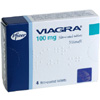 Brand ViagraActive ingredient: Sildenafil$1.77 for pillBrand Viagra is often the first treatment tried for erectile dysfunction in men and pulmonary arterial hypertension.
Brand ViagraActive ingredient: Sildenafil$1.77 for pillBrand Viagra is often the first treatment tried for erectile dysfunction in men and pulmonary arterial hypertension. Doxycycline$0.30 for pillDoxycyline is a tetracycline antibiotic used to treat infections of urinary tract, acne, gonorrhea, chlamydiosis, periodontitis, etc.
Doxycycline$0.30 for pillDoxycyline is a tetracycline antibiotic used to treat infections of urinary tract, acne, gonorrhea, chlamydiosis, periodontitis, etc. PropeciaActive ingredient: Finasteride$0.51 for pillPropecia is used to treat hair loss (male pattern). Also it is used to treat prostate cancer and benign prostatic hyperplasia.
PropeciaActive ingredient: Finasteride$0.51 for pillPropecia is used to treat hair loss (male pattern). Also it is used to treat prostate cancer and benign prostatic hyperplasia. LevitraActive ingredient: Vardenafil$1.00 for pillLevitra is used to treat sexual function problems such as Impotence or Erectile Dysfunction.
LevitraActive ingredient: Vardenafil$1.00 for pillLevitra is used to treat sexual function problems such as Impotence or Erectile Dysfunction. AmoxilActive ingredient: Amoxicillin$0.39 for pillAmoxil is an antibiotic from the penicillin group used to treat infections such as pneumonia, gonorrhea caused by E. coli, salmonella, etc.
AmoxilActive ingredient: Amoxicillin$0.39 for pillAmoxil is an antibiotic from the penicillin group used to treat infections such as pneumonia, gonorrhea caused by E. coli, salmonella, etc. Viagra ProfessionalActive ingredient: Sildenafil$0.57 for pillViagra Professional is an extra-strength prescription medicine. It starts acting faster and the effect lasts longer that with regular Viagra.
Viagra ProfessionalActive ingredient: Sildenafil$0.57 for pillViagra Professional is an extra-strength prescription medicine. It starts acting faster and the effect lasts longer that with regular Viagra. PrednisoneActive ingredient: prednisone$0.30 for pillPrednisone is used to reduce inflammation and alleviate symptoms in a variety of disorders, including rheumatoid arthritis and severe cases of asthma.
PrednisoneActive ingredient: prednisone$0.30 for pillPrednisone is used to reduce inflammation and alleviate symptoms in a variety of disorders, including rheumatoid arthritis and severe cases of asthma.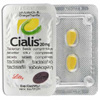 Brand CialisActive ingredient: Tadalafil$3.09 for pillBrand Cialis improves erection and helps to achieve a successful sexual intercourse.
Brand CialisActive ingredient: Tadalafil$3.09 for pillBrand Cialis improves erection and helps to achieve a successful sexual intercourse.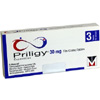 DapoxetineActive ingredient: Dapoxetine$0.95 for pillDapoxetine is used as a treatment for premature ejaculation.
DapoxetineActive ingredient: Dapoxetine$0.95 for pillDapoxetine is used as a treatment for premature ejaculation. ZithromaxActive ingredient: Azithromycin$0.55 for pillZithromax is a macrolide antibiotic to treat infections of upper and low respiratory tract, especially ear infections, pneumonia.
ZithromaxActive ingredient: Azithromycin$0.55 for pillZithromax is a macrolide antibiotic to treat infections of upper and low respiratory tract, especially ear infections, pneumonia. NolvadexActive ingredient: tamoxifen$0.52 for pillNolvadex (Tamoxifen) is used for treating breast cancer in women.
NolvadexActive ingredient: tamoxifen$0.52 for pillNolvadex (Tamoxifen) is used for treating breast cancer in women.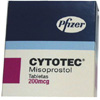 CytotecActive ingredient: Misoprostol$1.70 for pillCytotec prevents formation of stomach ulcers in patients treated by NSAIDs or arthritis or pain medicines.
CytotecActive ingredient: Misoprostol$1.70 for pillCytotec prevents formation of stomach ulcers in patients treated by NSAIDs or arthritis or pain medicines. Cialis ProfessionalActive ingredient: Tadalafil$1.20 for pillCialis Professional is essentially a "new and improved" formula of the original Cialis®. While the product has been reformulated and enhanced in its ...
Cialis ProfessionalActive ingredient: Tadalafil$1.20 for pillCialis Professional is essentially a "new and improved" formula of the original Cialis®. While the product has been reformulated and enhanced in its ...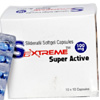 Viagra Super ActiveActive ingredient: Sildenafil$1.25 for pillViagra Super Active is created to deliver maximum effect in the shortest time. It will take you only 10 minutes to feel the result.
Viagra Super ActiveActive ingredient: Sildenafil$1.25 for pillViagra Super Active is created to deliver maximum effect in the shortest time. It will take you only 10 minutes to feel the result.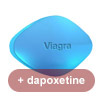 Extra Super ViagraActive ingredient: dapoxetine$2.86 for pillExtra Super Viagra is used in the treatment of Erectile Dysfunction with Premature Ejaculation. Extra Super Viagra contains Sildenafil100 mg and Dapoxetine ...
Extra Super ViagraActive ingredient: dapoxetine$2.86 for pillExtra Super Viagra is used in the treatment of Erectile Dysfunction with Premature Ejaculation. Extra Super Viagra contains Sildenafil100 mg and Dapoxetine ...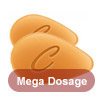 Cialis Extra DosageActive ingredient: Tadalafil$2.05 for pillCialis Extra Dosage is indicated for the treatment of erectile dysfunction. Cialis Extra Dosage works faster than other ED drugs and lasts for an extended ...
Cialis Extra DosageActive ingredient: Tadalafil$2.05 for pillCialis Extra Dosage is indicated for the treatment of erectile dysfunction. Cialis Extra Dosage works faster than other ED drugs and lasts for an extended ...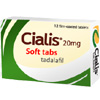 Cialis SoftActive ingredient: Tadalafil$1.11 for pillCialis Soft improves erection and helps to achieve a successful sexual intercourse.
Cialis SoftActive ingredient: Tadalafil$1.11 for pillCialis Soft improves erection and helps to achieve a successful sexual intercourse.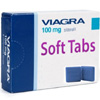 Viagra SoftActive ingredient: Sildenafil$0.91 for pillViagra Soft is a chewable tablet. Absorbed directly into the bloodstream, it acts faster. It is used to treat erection problems in men. The time necessary ...
Viagra SoftActive ingredient: Sildenafil$0.91 for pillViagra Soft is a chewable tablet. Absorbed directly into the bloodstream, it acts faster. It is used to treat erection problems in men. The time necessary ... KamagraActive ingredient: Sildenafil$0.90 for pillKamagra is used for the treatment of erectile dysfunction in men and pulmonary arterial hypertension.
KamagraActive ingredient: Sildenafil$0.90 for pillKamagra is used for the treatment of erectile dysfunction in men and pulmonary arterial hypertension. CiproActive ingredient: Ciprofloxacin$0.22 for pillCipro is an antibiotic in a group of drugs called fluoroquinolones. It is used to treat different types of bacterial infections, e.g. bladder inflammation.
CiproActive ingredient: Ciprofloxacin$0.22 for pillCipro is an antibiotic in a group of drugs called fluoroquinolones. It is used to treat different types of bacterial infections, e.g. bladder inflammation.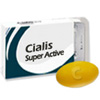 Cialis Super ActiveActive ingredient: Tadalafil$1.32 for pillCialis Super Active increases testosterone levels, possesses enhanced vasodilating effect, increases sperm production and sexual arousal, stamina, and ...
Cialis Super ActiveActive ingredient: Tadalafil$1.32 for pillCialis Super Active increases testosterone levels, possesses enhanced vasodilating effect, increases sperm production and sexual arousal, stamina, and ...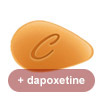 Extra Super CialisActive ingredient: tadalafil$3.06 for pillExtra Super Cialis is used in the treatment of Erectile Dysfunction with Premature Ejaculation. Extra Super Cialis 100mg contains Tadalafil 40 mg and ...
Extra Super CialisActive ingredient: tadalafil$3.06 for pillExtra Super Cialis is used in the treatment of Erectile Dysfunction with Premature Ejaculation. Extra Super Cialis 100mg contains Tadalafil 40 mg and ...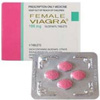 Female ViagraActive ingredient: Sildenafil$0.68 for pillFemale Viagra improves woman's sexuality, increases sensitivity to stimulation, allows to reach an intense sexual satisfaction.
Female ViagraActive ingredient: Sildenafil$0.68 for pillFemale Viagra improves woman's sexuality, increases sensitivity to stimulation, allows to reach an intense sexual satisfaction. LasixActive ingredient: Furosemide$0.25 for pillLasix belongs to a class of diuretics, it is prescribed in patients with swelling caused by congestive heart failure.
LasixActive ingredient: Furosemide$0.25 for pillLasix belongs to a class of diuretics, it is prescribed in patients with swelling caused by congestive heart failure.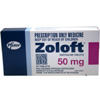 ZoloftActive ingredient: Sertraline$0.28 for pillZoloft is a selective serotonin reuptake inhibitor to treat depression, posttraumatic stress disorder, panic disorder, certain types of social anxiety ...
ZoloftActive ingredient: Sertraline$0.28 for pillZoloft is a selective serotonin reuptake inhibitor to treat depression, posttraumatic stress disorder, panic disorder, certain types of social anxiety ...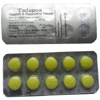 TadapoxActive ingredient: tadalafil$1.08 for pillTadapox is a new combination tablet containing two of the most potent and effective pharmaceuticals proven to combat the major causes of male sexual ...
TadapoxActive ingredient: tadalafil$1.08 for pillTadapox is a new combination tablet containing two of the most potent and effective pharmaceuticals proven to combat the major causes of male sexual ...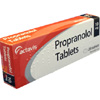 PropranololActive ingredient: propranolol$0.27 for pillPropranolol works by decreasing the action of pacemaker cells and slowing certain impulses in the heart.
PropranololActive ingredient: propranolol$0.27 for pillPropranolol works by decreasing the action of pacemaker cells and slowing certain impulses in the heart.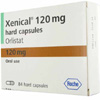 XenicalActive ingredient: Orlistat$0.79 for pillXenical (Orlistat) is recommended and prescribed by pharmacists as a weight loss medication that targets the absorption of fat in your body rather than ...
XenicalActive ingredient: Orlistat$0.79 for pillXenical (Orlistat) is recommended and prescribed by pharmacists as a weight loss medication that targets the absorption of fat in your body rather than ... Prednisolone$0.32 for pillPrednisolone is used for treating allergies, arthritis, breathing problems (e.g., asthma), certain blood disorders, collagen diseases (e.g., lupus), certain ...
Prednisolone$0.32 for pillPrednisolone is used for treating allergies, arthritis, breathing problems (e.g., asthma), certain blood disorders, collagen diseases (e.g., lupus), certain ... MetforminActive ingredient: metformin$0.26 for pillMetformin is a biguanide anti-diabetic that works by decreasing the amount of sugar that the liver produces and the intestines absorb.
MetforminActive ingredient: metformin$0.26 for pillMetformin is a biguanide anti-diabetic that works by decreasing the amount of sugar that the liver produces and the intestines absorb. AntabuseActive ingredient: Disulfiram$0.43 for pillAntabuse is used for treating alcoholism.
AntabuseActive ingredient: Disulfiram$0.43 for pillAntabuse is used for treating alcoholism.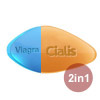 SildalisActive ingredient: tadalafil$0.95 for pillSildalis is a combination drug, consisting both of Tadalafil and Sildenafil citrate (Viagra+Cialis). This combined medication is designed for the treatment ...
SildalisActive ingredient: tadalafil$0.95 for pillSildalis is a combination drug, consisting both of Tadalafil and Sildenafil citrate (Viagra+Cialis). This combined medication is designed for the treatment ...